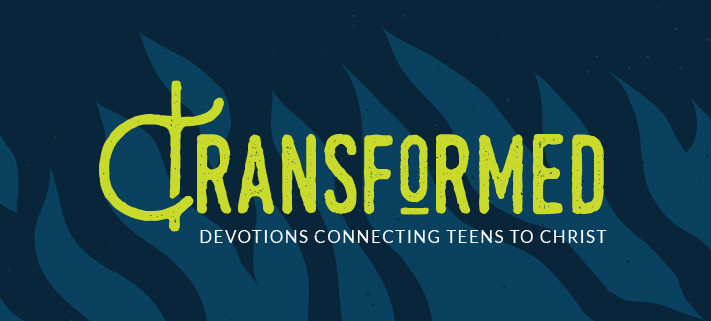Walking Through Life With Each Other
by Paula Sulzle
Submit to one another out of reverence for Christ.
Wives, submit yourselves to your own husbands as you do to the Lord. For the husband is the head of the wife as Christ is the head of the church, his body, of which he is the Savior. Now as the church submits to Christ, so also wives should submit to their husbands in everything.
Husbands, love your wives, just as Christ loved the church and gave himself up for her to make her holy, cleansing her by the washing with water through the word, and to present her to himself as a radiant church, without stain or wrinkle or any other blemish, but holy and blameless. In this same way, husbands ought to love their wives as their own bodies. He who loves his wife loves himself. After all, no one ever hated their own body, but they feed and care for their body, just as Christ does the church—for we are members of his body. “For this reason a man will leave his father and mother and be united to his wife, and the two will become one flesh.” This is a profound mystery—but I am talking about Christ and the church.
However, each one of you also must love his wife as he loves himself, and the wife must respect her husband (Ephesians 5:21-33).
For years, my husband and I have wanted to take dance lessons together. Early this past December, I saw an ad for online dance lessons: downloadable videos would be sent directly to us. I dropped the hint, yup, just dropped the link directly to my husband’s inbox. And then on Christmas Eve I received a beautiful and very professional-looking coupon for the online dance lessons. He got the hint!
So one night in early January, we planned a date to learn something we’ve never done before: ballroom dancing. It was sure a lesson in letting him lead. In fact, that’s what the instructors told us: “It’s his job to make you look beautiful as you both glide across the dance floor. It’s your job to follow his lead.”
A marriage relationship was designed in a way that can imitate a beautiful dance, one in which the wife respects her husband and allows him to lead, and the husband loves his wife and leads in a way that produces bountiful blessings for his wife and children—and as a result, for himself too.
The Marriage Union
God created every person uniquely different, and for good reason! We complement each other. Each person will bring their unique and varying gifts to a marriage. We all have areas of strengths that are not matched in our spouse. My weaknesses are often overcome by his strengths, and vice versa. Exactly how a man and woman partner together will look different in each home. Husband and wife will do well to communicate about their interests, gifts, and desires for the family.
Exactly how a man and woman partner together will look different in each home. Husband and wife will do well to communicate about their interests, gifts, and desires for the family.
In today’s busy schedules and full lives, finding time for productive and healthy communication might mean scheduling regular times to meet. In our marriage, it means setting aside at least two dates per month, several nights per week to connect, and also times to discuss finances, parenting decisions or long-term goals. Making decisions together is key in moving forward together—from the little things (who will do the laundry?) to the big things (what are our priorities when parenting the children?). Husbands and wives can take the time to get to know each other better, recognizing the gifts God gave each of them. Then each will use those gifts to benefit the family.
Will husband and wife always agree on the numerous aspects of life? Most certainly not. We all come with different experiences, expectations, and knowledge. So when a disagreement arises, spouses work together towards an understanding. It becomes much easier to love and forgive someone whom you think of as God’s dearly loved child. A husband who has put God first in his life will want to do what’s best for his wife and family, and he will value what she thinks and how she feels. Wives, we might not always understand the reasoning behind our husband’s decisions, but we know that God has called us to submit to our husbands, knowing we are submitting also to God’s will.
God has blessed our union with six children. My husband and I might not always agree with every aspect of parenting, but there is always one thing we do agree on: that the children see we are united. Sometimes we need to discuss something in private before we come to an agreement. At times, when I share my thoughts and ideas with my husband, he changes his mind about the situation. At other times, he persuades me, and I understand that his way is wiser than my own. There are times that I don’t understand, I don’t like it, yet I submit to my husband. I ask God to help me do this not with a stubborn attitude, but with a respectful and loving heart.
And then, there are those times when I foolishly override my husband’s leadership. When I realize what I’ve done, it takes me right back to the Garden of Eden. Eve overstepped her God-given role, instead paving her own path—and we know what resulted from that. I, too, have seen the results of my selfishness. I see how poorly things turn out when I act with no regard for my husband. I then realize I should have submitted to my husband rather than be like Eve who took matters into her own hands. Wives, in those times, seek forgiveness from God and your husband, and know that Jesus’ robe of righteousness covers you just as the beautiful white gown did on your wedding day.
As the head of the marriage and family, the husband is called first and foremost to be the spiritual leader for the family, to lead his family in devotions and prayers, and to point them to Jesus for forgiveness and guidance. A husband can love his wife best when he loves God most. A wife can love her husband best when she loves God most. Through the love and respect of husband and wife, God blesses the family unit.
The Unbelieving Husband
A husband who submits to Christ as his head is God’s will for all marriages. Yet we know that this is not always the situation. What does God ask of a wife married to an unbelieving husband? Does she still need to submit? Yes, she does! God tells us through the words of Peter that the principle still applies: “Wives, in the same way, be submissive to your own husbands, so that even if some do not obey the word, they might be won over without a word by the behavior of their wives, as they observe your respectful and holy behavior” (1 Peter 3:1-2).
An unbelieving husband will see the love of Christ by the way his Christian wife lives her life. When she shows respect to her husband, she is also showing respect to Christ and for God’s perfect design.
When Christians live as bright shining lights for Jesus, people begin to notice. In this way, a wife will be ready to give an answer for the hope she has—not only to her husband, but anyone else who asks how she can be a submissive, respectful, and loving wife. God will continue to bless her through her obedience to his will.
When Christians live as bright shining lights for Jesus, people begin to notice. In this way, a wife will be ready to give an answer for the hope she has—not only to her husband, but anyone else who asks how she can be a submissive, respectful, and loving wife.
The Single Person
Christians who are single also desire to follow God’s perfect design for man and woman. When it comes to marriage, though, they might find it difficult to know how they can follow God’s design for man and woman in the home. However, people who are not married can honor this principle in a number of ways.
If you are a single person, let this be an encouragement to you: it is a blessing when you encourage and support husbands and wives in their callings, especially encouraging wives through your friendships. You can discourage the pity party and refuse to join in tearing a husband down when a wife is frustrated with him or his behavior. You can speak well of God’s design and the blessings a marriage brings to the family unit and society. When you use your words to heal, not harm, God is using you to help build up marriages of those around you.
When you use your words to heal, not harm, God is using you to help build up marriages of those around you.
Those who are single can also honor God’s perfect design of head and helper in all areas of their own lives, showing they respect God’s will for man and woman.
Pray for marriages. Pray that husbands and wives put Christ as the head and center of their marriages. Pray for husbands that they will lead in a way that is God-pleasing and builds up their families. Pray for wives that they may turn to their husbands for guidance and submit to their husbands as to the Lord. Pray that both husband and wife will honor God in their unique callings, using their gifts for the benefit of their family and to glorify him.
We see how the church submits to Christ. We see how Christ submitted to his Father’s holy and perfect will. We know what God’s Word tells us—how to honor him, lead holy lives, and work together in our marriages to have beautiful partnerships. Yet we are sinful humans. We fell right along with Adam and Eve in the Garden when they sinned against God. “For just as through the disobedience of the one man the many were made sinners…”
But listen to this! Here’s the good part! “…so also through the obedience of the one man the many will be made righteous” (Romans 5:19).
Christ’s perfect life and innocent death won for us salvation. We can walk through life with each other, knowing that God has blessed and strengthened man and woman—husband and wife—with his grace.
For Further Reflection
- Wives, what are three ways you can show your husband you honor him as your head?
- How can a Christian wife submit to her unbelieving husband when it seems he only cares for himself?
- What is one specific thing you can do this week to build up a marriage?
Closing Prayer
O gracious Father, you have so wonderfully blessed us with this beautiful design for a husband and wife. You have given us your perfect example in Christ. Yet we stumble and fall and go our own way. Forgive us for the times when we have not honored our husbands, have failed to be a selfless helper to them, or have not supported marriages through our words and prayers. Use us to build each other up in the roles you have graciously given us. Thank you for strengthening our faith through your Word. Amen.

Reflections on our Unique Callings is brought to you by WELS Women’s Ministry.
All Scripture quotations, unless otherwise indicated, are taken from the Holy Bible, New International Version®, NIV®. Copyright ©1973, 1978, 1984, 2011 by Biblica, Inc.™ Used by permission of Zondervan. All rights reserved worldwide.







